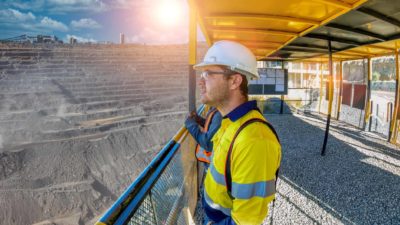Iron ore prices have plunged more than 40% since May, dragging the Fortescue Metals Group Limited (ASX: FMG) share price well into negative year-to-date territory.
At its highest point in the past 12 months, the Fortescue share price was up almost 50% by late July to $26.58. It then rapidly deteriorated and is trading today at $18.01, a gain of just 0.67% over the year.
However, Citi's veteran mining analyst Paul McTaggart thinks there could be some benefits to lower iron ore prices, according to a report in the Australian Financial Review (AFR).
What's so good about lower iron ore prices?
Well, lower iron ore prices isn't exactly a positive factor for the Fortescue share price.
After all, higher iron ore prices were the main driver behind Fortescue's bumper FY21 full-year results, which included a massive fully franked dividend of $2.11 per share.
According to the AFR report, McTaggart believes "falling iron ore prices will reduce the competition facing Australian miners, as higher-cost producers from countries outside Australia, Brazil and to a lesser extent India are forced out of the market".
The report said that Citi estimates if iron ore falls below $US100 a tonne, China's imports from outside the major producing nations would fall from 200 million tonnes a year to 120 million tonnes.
McTaggart also highlighted that the potential entry of production from Guinea, Africa appears to be far less certain following the coup that deposed president Alpha Conde.
The Simandou project in Guinea is expected to produce 150 million tonnes per annum of iron ore at full capacity. It is partly owned by Rio Tinto Limited (ASX: RIO).
However, the coup is likely to add greater uncertainty to the "already complicated and expensive project", the report said.
What does this mean for the Fortescue share price?
Fortescue's record FY21 net profit of US$10,295 million would not be possible without high iron ore prices. The company's average realised price increased from US$79/dry metric tonne (dmt) in 2020 to US$135 dmt in FY21.
From a production perspective, Fortescue isn't expecting a significant jump in iron ore shipments. It is forecasting 180 to 185 million tonnes in FY22 compared to 182.2 million tonnes in FY21.
Perhaps what McTaggart is getting at is that Australia's iron ore giants will be in a far better position than most to weather lower iron ore prices due to their highly competitive margins.









